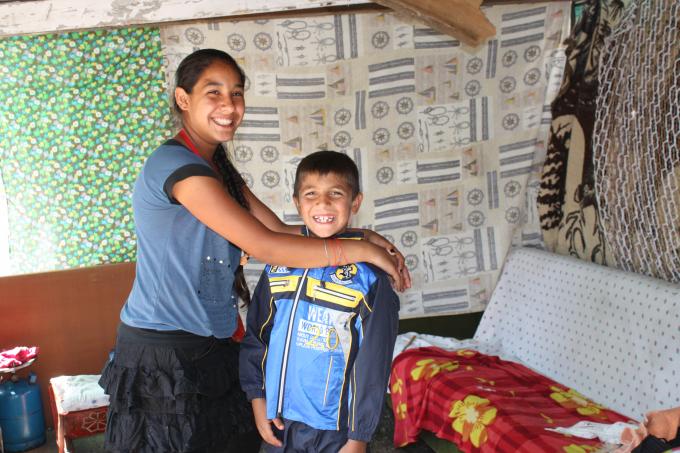Civil Society Organizations call for authorities to fulfil the basic human rights of the Roma community
For several weeks more than forty families including 88 children from a Roma community in Tirana have been living in temporary shelters on the pavement after being evicted from their informal settlement in the former 'Dekorit' premises on the Rruga Kavaja. This community is in an extremely vulnerable situation with health and hygiene conditions deteriorating on a daily basis. The children and community are exposed to constant danger from the traffic on the busy road.
The EU has called for the authorities to take action. NGOs and organizations who have received funding from the EU Delegation for projects to realize the human rights of the Roma community have been working on a daily basis with Roma community members for several years. From their work with and for Roma citizens, these organizations understand very well the challenges which the Roma community faces every day: discrimination, extreme poverty, inhumane living conditions and a daily struggle for survival. These organizations have provided services, campaigned for the rights of the Roma, worked hard to bring sustainable changes to their situation, advocated for inclusion of Roma children in schools and fought to ensure they receive state support they need. They have lobbied for resources to be allocated by the Government to ensure the National Action Plan for Roma is properly financed. All organizations working with and for Roma want see the human, social and economic rights of the Roma community in Albania met in full, in line with the Constitution of Albania and the commitments made by the Government as part of the Decade of Roma Inclusion.
There has been much discussion in the media about the intolerable situation faced by the evicted Roma community, and yet there has been no action by the Municipal or central government authorities to provide assistance, services or support to this community. Non-governmental organizations have provided some immediate assistance to the evicted families but this is not a sustainable solution. The responsibility for providing support to Albanian citizens, who need it, lies firmly with the State.
This Roma community is living in intolerable and inhumane conditions. The municipal and State authorities must now take urgent action to find immediate solutions and fulfil the basic human rights of this Roma community in Tirana.
Across Albania Roma communities live in precarious social and economic situations. The State must allocate human and financial resources to ensure equality and social inclusion for the Roma community and to fully implement the National Action Plan for Roma. This action is necessary not because Albania wants to fulfil the criteria for EU accession but because as a democratic society Albania must ensure that all citizens' human, social and economic rights are fulfilled. Roma community members are citizens just as all Albanians are, and the State must uphold their human rights, preserve their dignity, promote equality and ensure adequate housing and basic social conditions by providing the support and basic services required by all communities in need.
Achieving lasting change for the Roma community in Albania can be achieved with strong leadership from the State. It will also require effective collaboration between the local and national Government, Roma communities and civil society. Organisations who work with and for vulnerable communities in Albania confirm their commitment to fully collaborate with the State authorities, who now must take urgent action to translate the human rights of Roma communities into reality.
04/09/2013
http://www.flickr.com/photos/savethechildrenal/sets/72157637407317596/
 Albania
Albania 